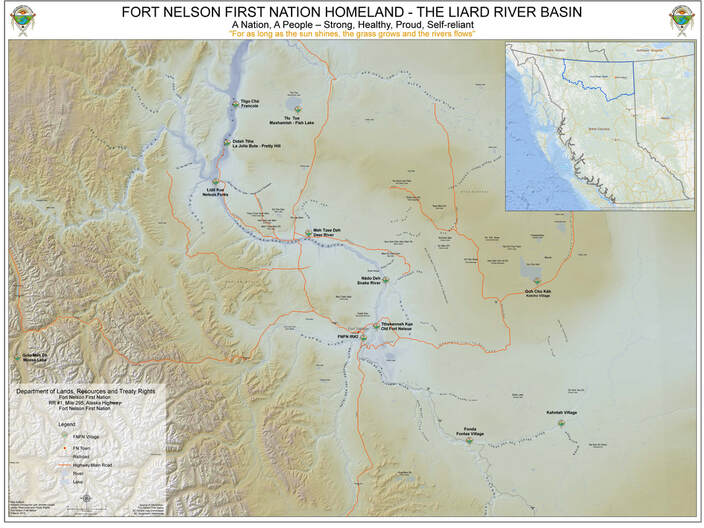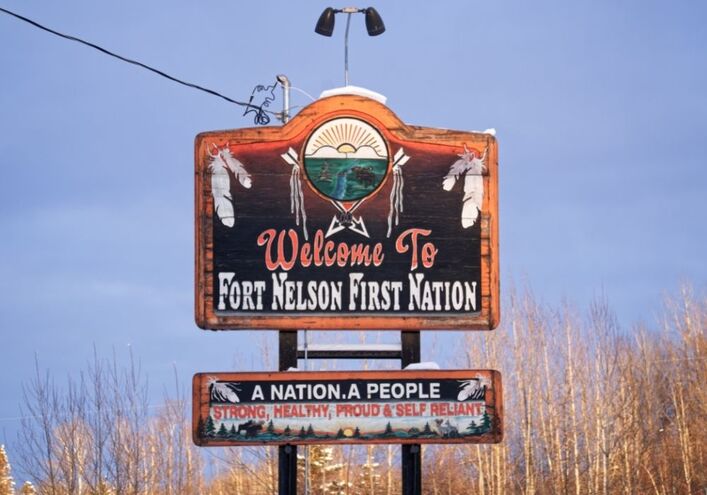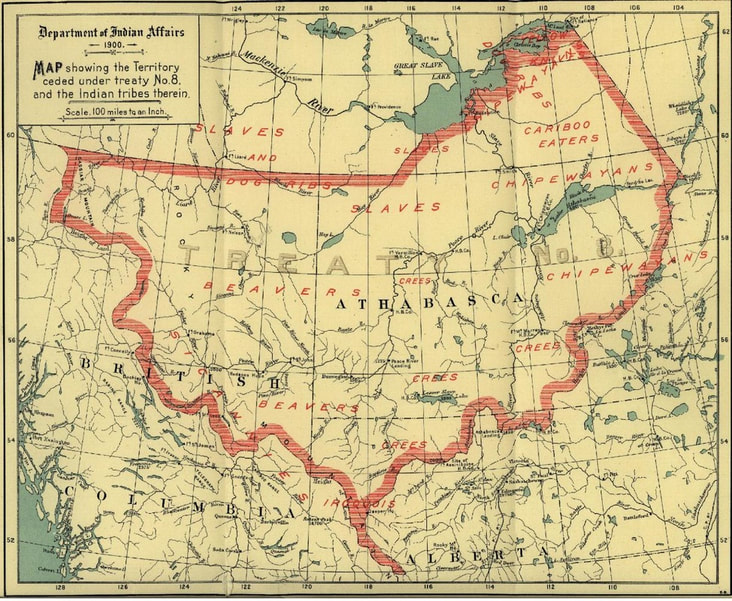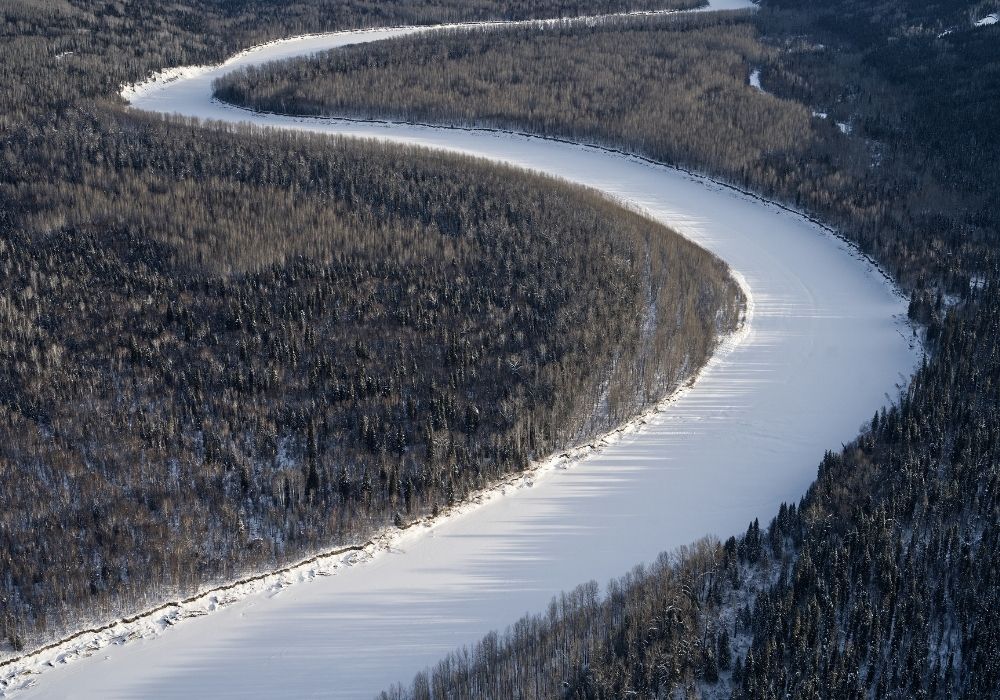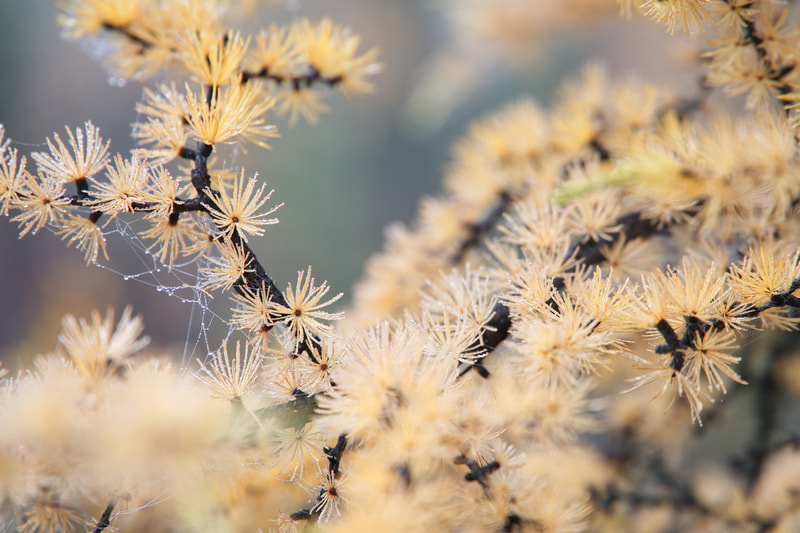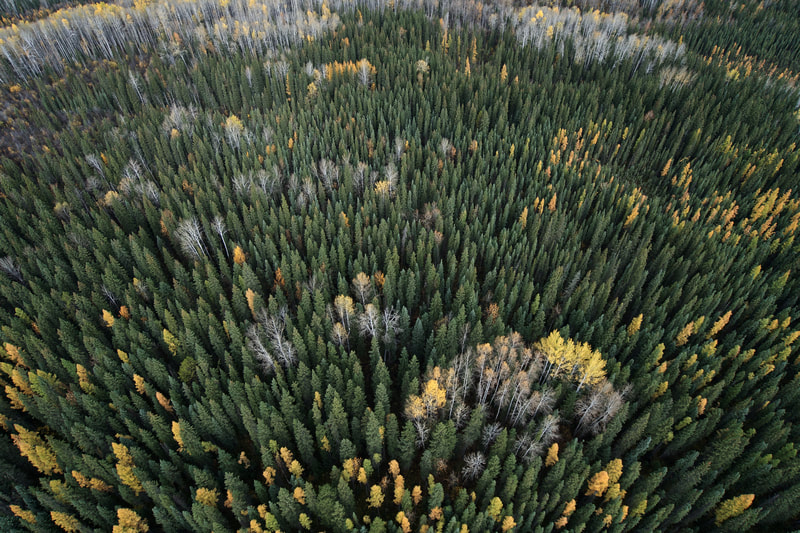Our Homeland
We, the Fort Nelson First Nation, are People of the Land, we have lived in denendeh (Dene land) since time immemorial. Today, we are a diverse community with a rich cultural heritage that is tied to denendeh and all our relations in the territory. FNFN Dene families are closely related to the Dene of southern Northwest Territories and northwest Alberta and trace their roots back to historic villages throughout the territory: Łidli Ku (Nelson Forks), Tłigoh-ché (François), Tłu Tue (Fish lake or Maxhamish Lake), Dídah Tthe (Pretty Hill), Medzih Deh (Deer River), Nádo Deh Kue (Snake River), Goh Cho Kué (Kotcho), Fontas, Kahntah and Moose Lake. FNFN Cree families trace their roots to villages in the Peace and Athabasca River basins, coming to the territory in the 1800’s to Old Fort Nelson to trade furs and purchase goods at the Hudson Bay post on the Fort Nelson River.
|
For countless generations, the land has sustained our people. The land is part of who we are, how we think and where we are from. FNFN culture, history, and heritage are tied to the land, waters and all the animals of our homelands. This land is where our ancestors walked before us, laying the foundation for who we are today. For FNFN citizens, our homeland is not just "lands and resources" and possession of them, but the complex inter-relationships between people, animals and the physical and spiritual world around us.
|
"These treaties were a recognition of Indian title." - Justice E. Hall, Calder v. Attorney General of B.C.
Treaty 8 Territory
|
In 1910, our ancestors signed onto Treaty #8 with Canada. In exchange for the guarantee that we are free to live our lives as formerly and undisturbed by newcomers, our ancestors agreed to share our lands and to live in peace with our new neighbor's. It was understood that peace could only come if we were each left to travel our own path as we walked toward a common future. Many things have changed in 110 years, and at times the spirit of the treaty has been forgotten by our new neighbor's, but our understanding of the treaty relationship remains, and will remain "as long as the sun shines, the river flows, and the grass grows".
Our homelands remain unceded Treaty territory. Treaty No. 8 is not a surrender treaty. It is Crown recognition of our title to our lands and a treaty of peace and sharing. It is an international agreement that established a peaceful relationship between Indigenous nations and Canada. In agreeing to welcome newcomers in peace we did not give up our homelands, rather, we formed a solemn relationship that allowed Canadians to flourish peacefully in our lands. |
